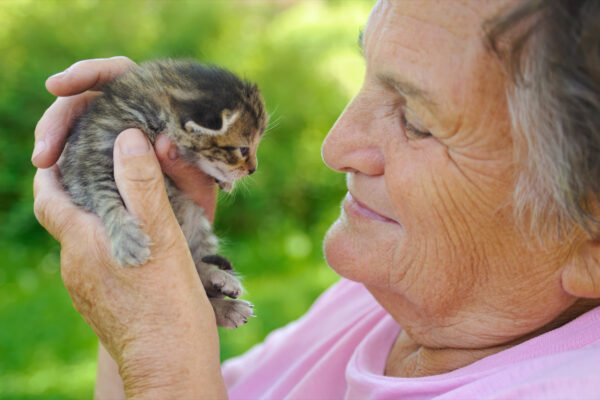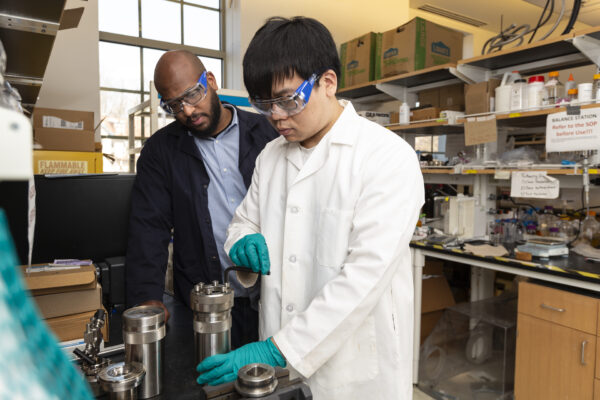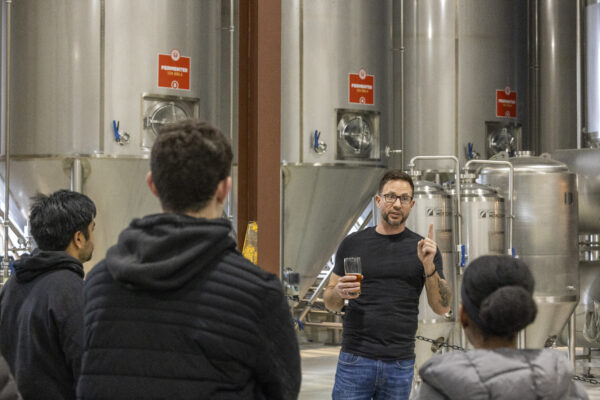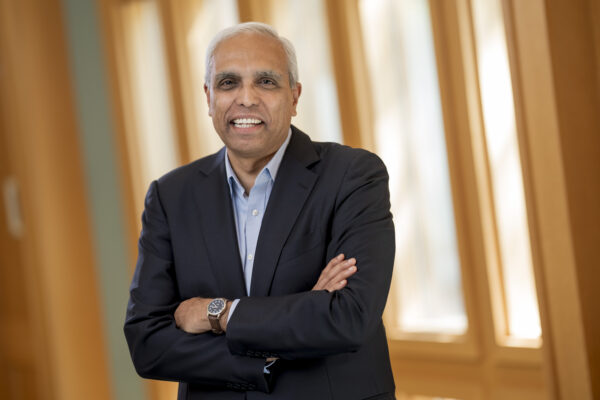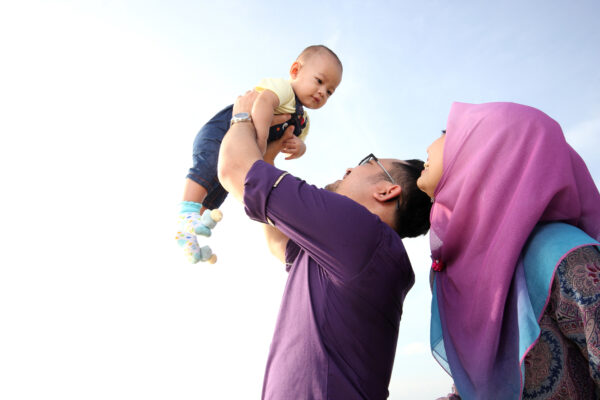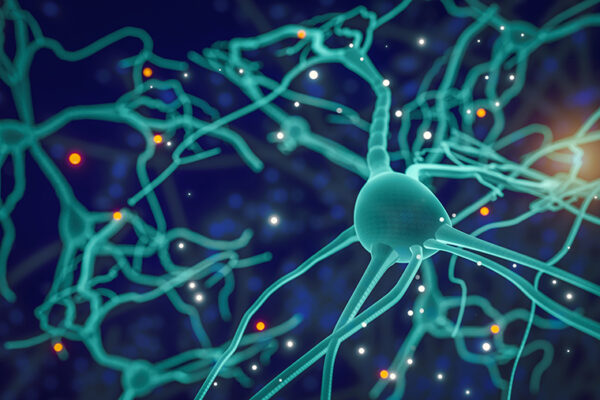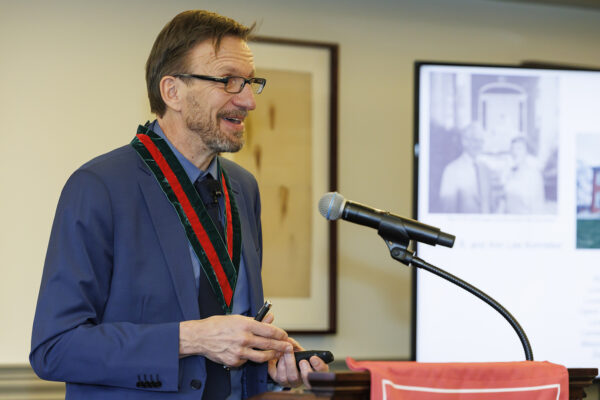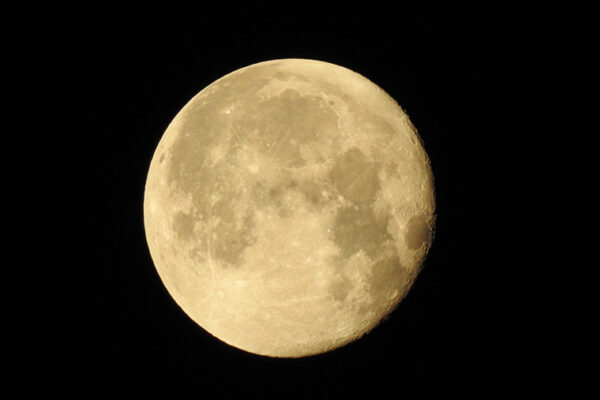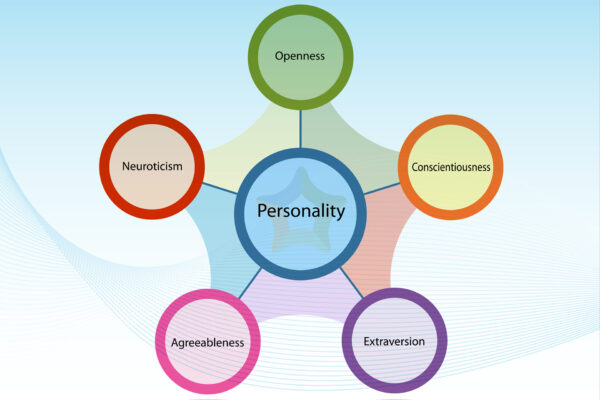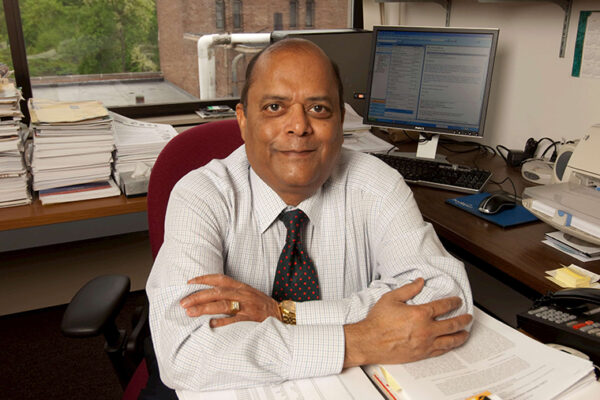Happiness may protect against dementia
A sense of well-being can have a profound impact on health, especially for the aging brain. Higher levels of well-being have been robustly associated with a lower risk for future dementia, according to WashU psychology researchers who contributed to this year’s World Happiness Report.
Transforming wood waste for sustainable manufacturing
Marcus Foston, an associate professor of energy, environmental and chemical engineering at the McKelvey School of Engineering, is exploring how to add value to lignin, a type of polymer found in wood.
The future is brewed
The undergraduate students in Washington University’s zymurgy class can learn about the practical application of synthetic biology through the traditional science of beer brewing.
WashU engineers manage a first: measuring pH in cell condensates
In a first for the field, biomedical engineers at the McKelvey School of Engineering determined the pH profiles of certain key types of cellular condensates.
Five factors to ensure an infant thrives
In new research published in JAMA Pediatrics, researchers at Washington University make the case that “thrive factors” are a key element of healthy human brain, behavioral and cognitive development. The five thrive factors include: environmental stimulation, nutrition, neighborhood safety, positive caregiving and regular sleep.
Demystifying nano-neuro interactions
Researchers at the McKelvey School of Engineering received a three-year $570,746 grant from the National Science Foundation to support their work to understand the fundamental mechanisms that underpin interactions between nerve cells, or neurons, and nanoparticles, which can be used to both sense and stimulate neurons.
Krawczynski installed as Wilfred R. and Ann Lee Konneker Distinguished Professor of Physics
Henric Krawczynski was installed as the Wilfred R. and Ann Lee Konneker Distinguished Professor of Physics in Arts & Sciences during a ceremony Feb. 28 at the Whittemore House. His installation lecture was titled “The Bright Side of Black Holes.”
With NASA support, device for future lunar mission being developed at WashU
Physicist Jeff Gillis-Davis in Arts & Sciences is leading a team that will develop and test an instrument to measure the chemistry of rocks, minerals, soil and ices on the surface of the Moon. The device is small enough to be carried by a rover or other robotic explorer.
Pandemic made its mark on personality traits
Researchers at Washington University in St. Louis have found that the pandemic changed personality traits, in that people became more conscientious and extraversion dropped.
Agarwal wins 2024 Thermal and Fluids Engineering Award
Ramesh Agarwal, the William Palm Professor of Engineering in the McKelvey School of Engineering at Washington University in St. Louis, has been selected to receive the 2024 Thermal and Fluids Engineering Award from the American Society of Thermal and Fluids Engineers.
Older Stories
